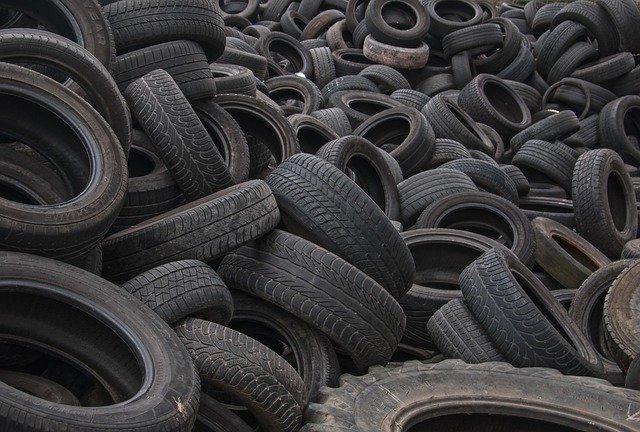Careers in Waste Management – Opportunities in Ireland
The waste management industry in Ireland has evolved significantly in recent decades, transforming from basic disposal operations to sophisticated resource recovery systems. This sector now plays a crucial role in Ireland's environmental sustainability efforts and circular economy goals. As environmental regulations become more stringent and public awareness of proper waste handling increases, career opportunities in this field continue to expand across various specializations, offering stable employment with competitive compensation and meaningful environmental impact.

What does waste management in Ireland entail?
Waste management in Ireland encompasses the collection, transportation, processing, recycling, disposal, and monitoring of waste materials. The sector operates under the guidance of Ireland’s Environmental Protection Agency (EPA) and follows national policies aligned with European Union directives. The country has established a waste hierarchy that prioritizes prevention, reuse, recycling, recovery, and finally disposal as a last resort.
Ireland produces approximately 3 million tonnes of municipal waste annually, with increasing portions being diverted from landfills to recycling and energy recovery facilities. The management of this waste requires specialized infrastructure including material recovery facilities, waste-to-energy plants, composting operations, and engineered landfills. The industry also focuses on hazardous waste management, construction and demolition waste processing, and the increasingly important area of electronic waste handling.
Who are the key professionals in recycling and waste treatment?
The waste management sector employs diverse professionals across multiple disciplines. Environmental engineers design waste processing facilities and develop treatment technologies to minimize environmental impact. They work alongside environmental scientists who monitor pollution levels, assess ecological risks, and ensure regulatory compliance.
Waste management technicians operate specialized equipment at recycling centers and treatment facilities, while collection operatives manage the logistics of waste collection from households and businesses. The industry also employs chemists who analyze waste composition and develop treatment methodologies, especially for hazardous materials.
Administrative and managerial roles include facility managers who oversee day-to-day operations, environmental compliance officers who ensure adherence to regulations, and sustainability consultants who advise organizations on waste reduction strategies. The sector additionally requires mechanics to maintain specialized vehicles, data analysts to track waste flows, and public education specialists to promote proper waste disposal practices among citizens.
How are material sorting and collection organized?
Ireland’s waste collection and sorting infrastructure has developed into a sophisticated system that supports the country’s recycling targets. Collection services operate through both public and private providers, with most residential collection privatized through a competitive tender system. Households typically have access to multiple bins for separated waste streams: general waste, recyclables, organic waste, and in some areas, glass.
Material recovery facilities (MRFs) serve as the backbone of the sorting infrastructure, where mixed recyclables undergo mechanical and manual sorting processes. These facilities employ conveyor systems, optical sorters, magnets, and eddy current separators to efficiently separate materials by type. Workers perform quality control on sorting lines to remove contaminants and ensure marketable material streams.
For organic waste, specialized collection vehicles transport materials to composting facilities or anaerobic digestion plants where they’re converted into compost or biogas. Ireland has also established networks of civic amenity sites and bring banks where residents can dispose of items not collected curbside, such as bulky waste, electronic equipment, and hazardous household products.
Why is this industry considered a promising green sector?
The waste management industry represents one of Ireland’s most significant green economy sectors due to its fundamental role in resource conservation and pollution prevention. As Ireland works toward circular economy goals, the waste sector increasingly focuses on recovering materials and energy rather than simple disposal, creating economic value while reducing environmental impact.
This industry contributes to decarbonization efforts through methane capture at landfills, energy production from waste, and the carbon savings achieved through recycling rather than manufacturing from virgin materials. The sector also supports innovation in new materials recovery technologies, waste-to-energy systems, and digital waste tracking platforms.
Ireland’s Climate Action Plan specifically identifies waste management as a key component of the country’s sustainability strategy, with targets for waste reduction, increased recycling rates, and decreased landfilling. This regulatory framework ensures continued investment in the sector and supports job creation in areas aligned with environmental protection.
Career prospects in the waste management sector
Employment opportunities in waste management continue to grow as the industry expands and evolves. Entry-level positions often require minimal qualifications but provide valuable on-the-job training and pathways to advancement. Technical roles typically require relevant certifications or vocational training, while professional positions in engineering, environmental science, or management generally demand third-level qualifications.
Salaries in the sector vary considerably based on role, experience, and location. Entry-level collection operatives typically earn between €25,000 and €32,000 annually, while technical specialists and facility operators can command €35,000-€45,000. Engineering and management positions generally offer salaries ranging from €45,000 to €75,000+, with directors and senior executives earning significantly more.
The industry offers strong job security due to the essential nature of waste services and the increasing regulatory requirements governing waste handling. Career advancement opportunities exist through both technical specialization and management progression. Many employers in the sector provide continuous professional development, supporting employees in acquiring additional qualifications and certifications.
| Career Path | Typical Entry Requirements | Approximate Salary Range (€) | Growth Potential |
|---|---|---|---|
| Collection Operative | Secondary education, driver’s license | 25,000 - 32,000 | Moderate |
| Recycling Technician | Certificate in waste management | 30,000 - 38,000 | Good |
| Environmental Engineer | Degree in environmental engineering | 45,000 - 65,000 | Excellent |
| Facility Manager | Degree plus experience | 55,000 - 75,000 | Excellent |
| Sustainability Consultant | Relevant degree and certifications | 40,000 - 60,000 | Very good |
| Compliance Officer | Environmental law knowledge | 38,000 - 55,000 | Good |
Prices, rates, or cost estimates mentioned in this article are based on the latest available information but may change over time. Independent research is advised before making financial decisions.
Ireland’s waste management industry offers diverse and rewarding career paths with strong prospects for growth as the nation pursues ambitious environmental goals. The sector combines stable employment with meaningful work that directly contributes to environmental protection and sustainability. For those seeking careers with positive ecological impact, waste management provides opportunities across various skill levels and disciplines, from practical operations to technical specialization and strategic management.




